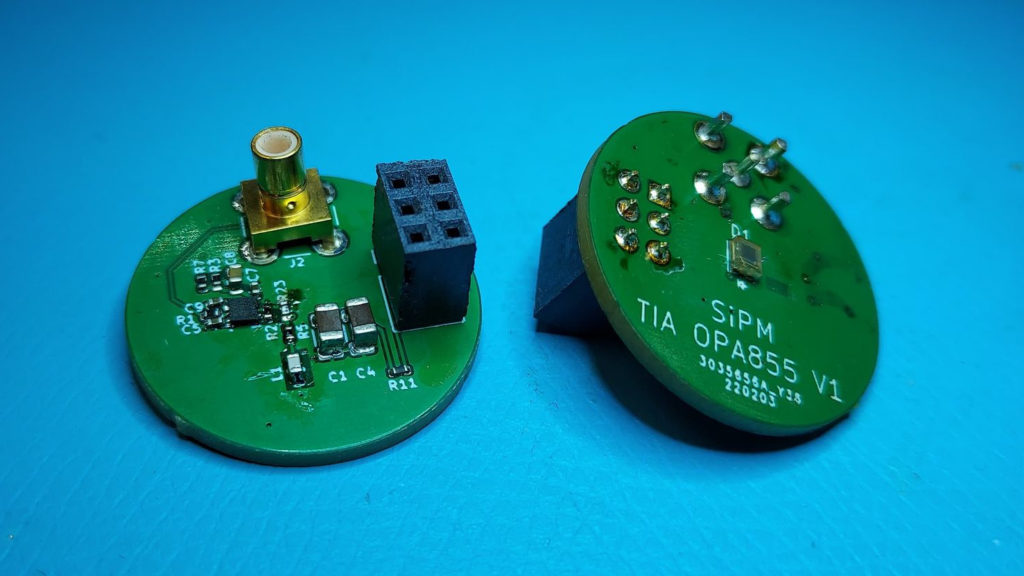
Author
George Funkenbusch
Mentor
Michael Giacomelli
Abstract
Silicon Photomultipliers (SiPMs) are attractive alternatives to photomultiplier tubes for low signal applications due to their durability, manufacturability, and affordability. However, their effectiveness in fast applications is limited due to the slow decay in their impulse response. By optimizing our SiPM detector’s readout electronics, we were able to improve the bandwidth from 70 MHz to 315 MHz, achieving a impulse response full-width-half-max of 1.7 ns and a 90-10 fall time of 1.5 ns. This improvement will vastly increase the SiPM’s viability for applications such as LiDAR, PET, and future fluorescence microscopy directions in our lab.

Full Text

George Funkenbusch
George Funkenbusch is an undergraduate Optics senior at the University of Rochester. He is primarily interested in biomedical optics including two-photon microscopy, optical coherence tomography, and quantitative phase imaging. George will begin pursuing his PhD in Biomedical Engineering at Duke University in Fall 2022.
Contact me at: gfunkenb@u.rochester.edu
